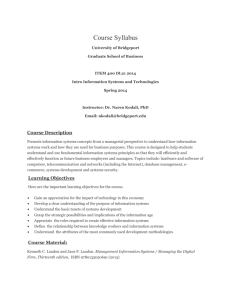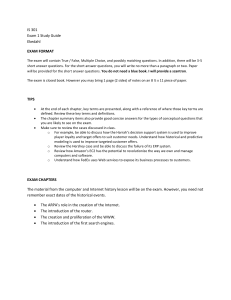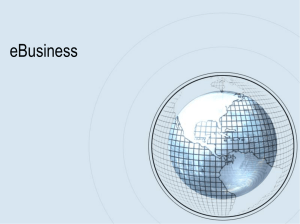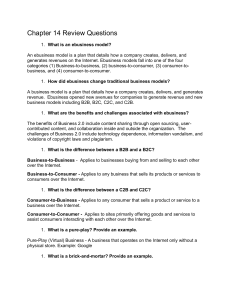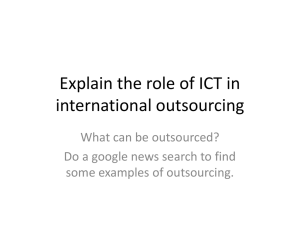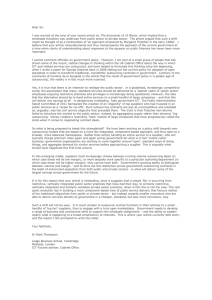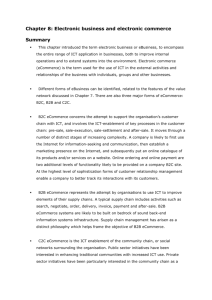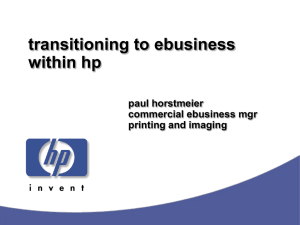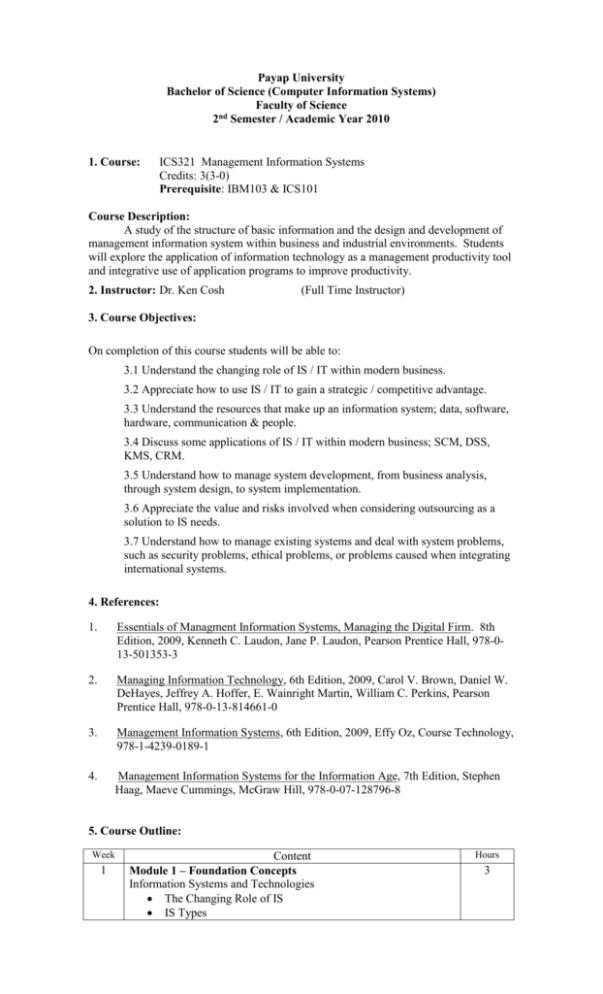
Payap University
Bachelor of Science (Computer Information Systems)
Faculty of Science
nd
2 Semester / Academic Year 2010
1. Course:
ICS321 Management Information Systems
Credits: 3(3-0)
Prerequisite: IBM103 & ICS101
Course Description:
A study of the structure of basic information and the design and development of
management information system within business and industrial environments. Students
will explore the application of information technology as a management productivity tool
and integrative use of application programs to improve productivity.
2. Instructor: Dr. Ken Cosh
(Full Time Instructor)
3. Course Objectives:
On completion of this course students will be able to:
3.1 Understand the changing role of IS / IT within modern business.
3.2 Appreciate how to use IS / IT to gain a strategic / competitive advantage.
3.3 Understand the resources that make up an information system; data, software,
hardware, communication & people.
3.4 Discuss some applications of IS / IT within modern business; SCM, DSS,
KMS, CRM.
3.5 Understand how to manage system development, from business analysis,
through system design, to system implementation.
3.6 Appreciate the value and risks involved when considering outsourcing as a
solution to IS needs.
3.7 Understand how to manage existing systems and deal with system problems,
such as security problems, ethical problems, or problems caused when integrating
international systems.
4. References:
1.
Essentials of Managment Information Systems, Managing the Digital Firm. 8th
Edition, 2009, Kenneth C. Laudon, Jane P. Laudon, Pearson Prentice Hall, 978-013-501353-3
2.
Managing Information Technology, 6th Edition, 2009, Carol V. Brown, Daniel W.
DeHayes, Jeffrey A. Hoffer, E. Wainright Martin, William C. Perkins, Pearson
Prentice Hall, 978-0-13-814661-0
3.
Management Information Systems, 6th Edition, 2009, Effy Oz, Course Technology,
978-1-4239-0189-1
4.
Management Information Systems for the Information Age, 7th Edition, Stephen
Haag, Maeve Cummings, McGraw Hill, 978-0-07-128796-8
5. Course Outline:
Week
1
Content
Module 1 – Foundation Concepts
Information Systems and Technologies
The Changing Role of IS
IS Types
Hours
3
2
3
4
5
6
7
8
9
10
11
12
13
Competing with I.T.
Fundamentals of Strategic Advantage
Using IT to gain Strategic Advantage
Module 2 – IT Infrastructure
Managing Hardware and Software Resources
Computer Hardware and IT infrastructure
Categories of Computers and Systems
Types of Software
Managing Hardware and Software Assets
3
Managing Data Resources
Organising Data in File format
Database Approach to Data Management
Creating Databases
Database Trends
Telecommunications and Networks
Components and Functions of Telecommunication Systems
Communication Networks
Ebusiness / Ecommerce technologies
The Internet and New IT Infrastructure
New IT for Digital Firms
The World Wide Web
Management Issues concerning Technology for Ebusiness
and Ecommerce
Module 3 – Business Applications
Ebusiness Systems
Functional Ebusiness Systems
Cross Functional Ebusiness Systems
Customer Relationship Management (CRM)
Supply Chain Management (SCM)
Ecommerce fundamentals and applications
Knowledge Management Systems (KMS)
Managing Knowledge in Digital Firms
Artificial Intelligence
Other Intelligent Techniques
Decision Support Systems (DSS)
Enhancing Decision Making
Group Decision Support Systems
Executive Support
Module 4 – Building Information Systems
Redesigning the Organisation with IS
Systems as planned organizational change
Business Process Reengineering / Process Improvement
System Development Approaches
Requirements Engineering & System Design
Understanding the Business Value of Systems and Managing
Change
Business Value of Systems
Change Management in IS success and Failure
Managing Implementation
Outsourcing Information Systems Management
Managing IT Outsourcing
Outsourcing Drivers – when to outsource, when not to
outsource
Structuring Outsourcing Alliances
Managing Alliances
Module 5 – Managing Information Systems
Ethical and Social Issues in Digital Firms
Understanding ethical and social issues related to systems
3
3
3
3
3
3
3
3
3
3
3
14
15
Ethics in an information society
Moral Dimensions of IS
Information Systems Security and Control
System Vulnerability and Abuse
Creating a Control Environment
Ensuring System Quality
Managing International Information Systems
The growth of International Information Systems
Organising International Information Systems
Managing Global Systems
Technology Issues and Opportunities for Global Value Chains
3
3
6. Course Activities
This course will involve;
Lectures
Case Studies
Individual Project
Reading the course material outside of class
7. Course Assessment:
1. Case Study Presentation
2. Individual Assignment
2. Midterm exam
3. Final exam
-
15%
15%
30%
40%
8. Course Evaluation:
1. To be able to take the exam students must attend class at least 80% of the
time.
2. Plagiarism is not acceptable, any students caught plagiarising will receive 0.
3. The evaluation is based on the Payap University grading scale given in the
table below:
Grade
Letter
Grade
Score (four-point
scale)
Transcript
Legend
80-100
A
4
Excellent
75-79
B+
3.5
Very Good
70-74
B
3
Good
65-69
C+
2.5
Quite Good
60-64
C
2
Moderate
55-59
D+
1.5
Weak
50-54
D
1
Very Weak
0-49
F
0
Fail

